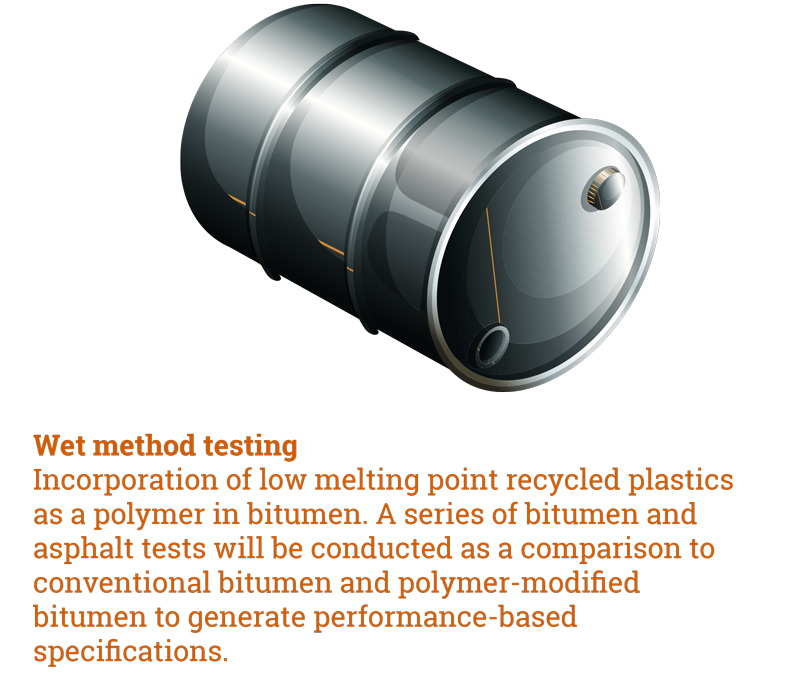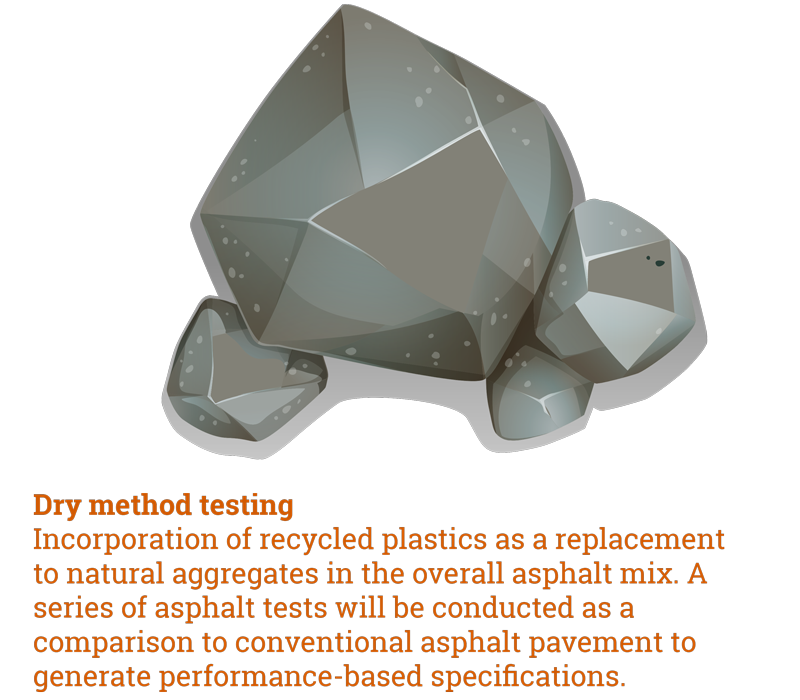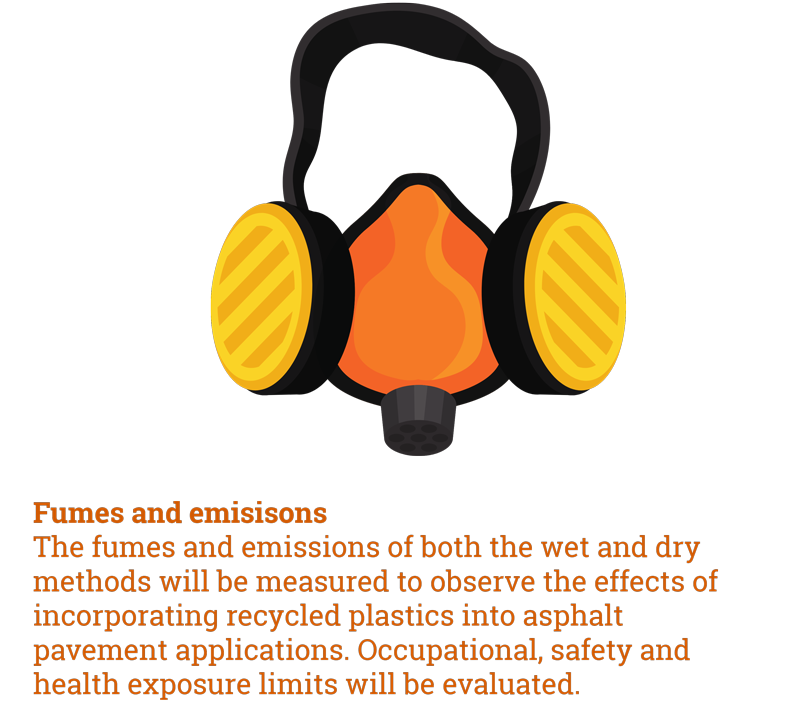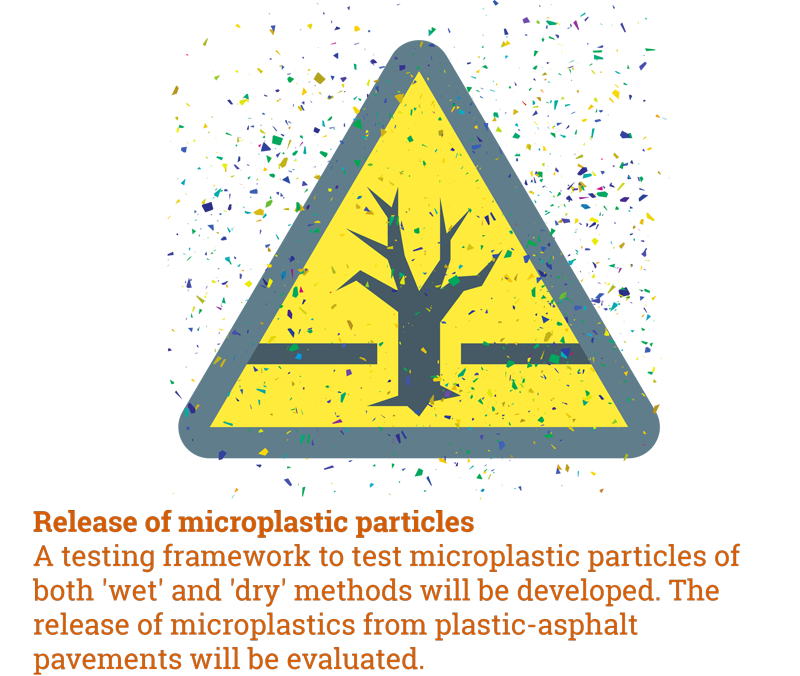Austroads Project APT6305 is investigating the benefits, methodologies, testing frameworks, and performance-based specifications for incorporating recycled plastics into asphalt.
Solutions for a more sustainable future
A total of 3.5 million tonnes of plastics were consumed in Australia for the 2018-19 financial year. 11.5% of the consumed plastics were recycled (locally and exported) while the rest were sent to land fill. With the COAG ban on plastic exports, alternative methods to deal with waste plastics must be implemented for a sustainable future.
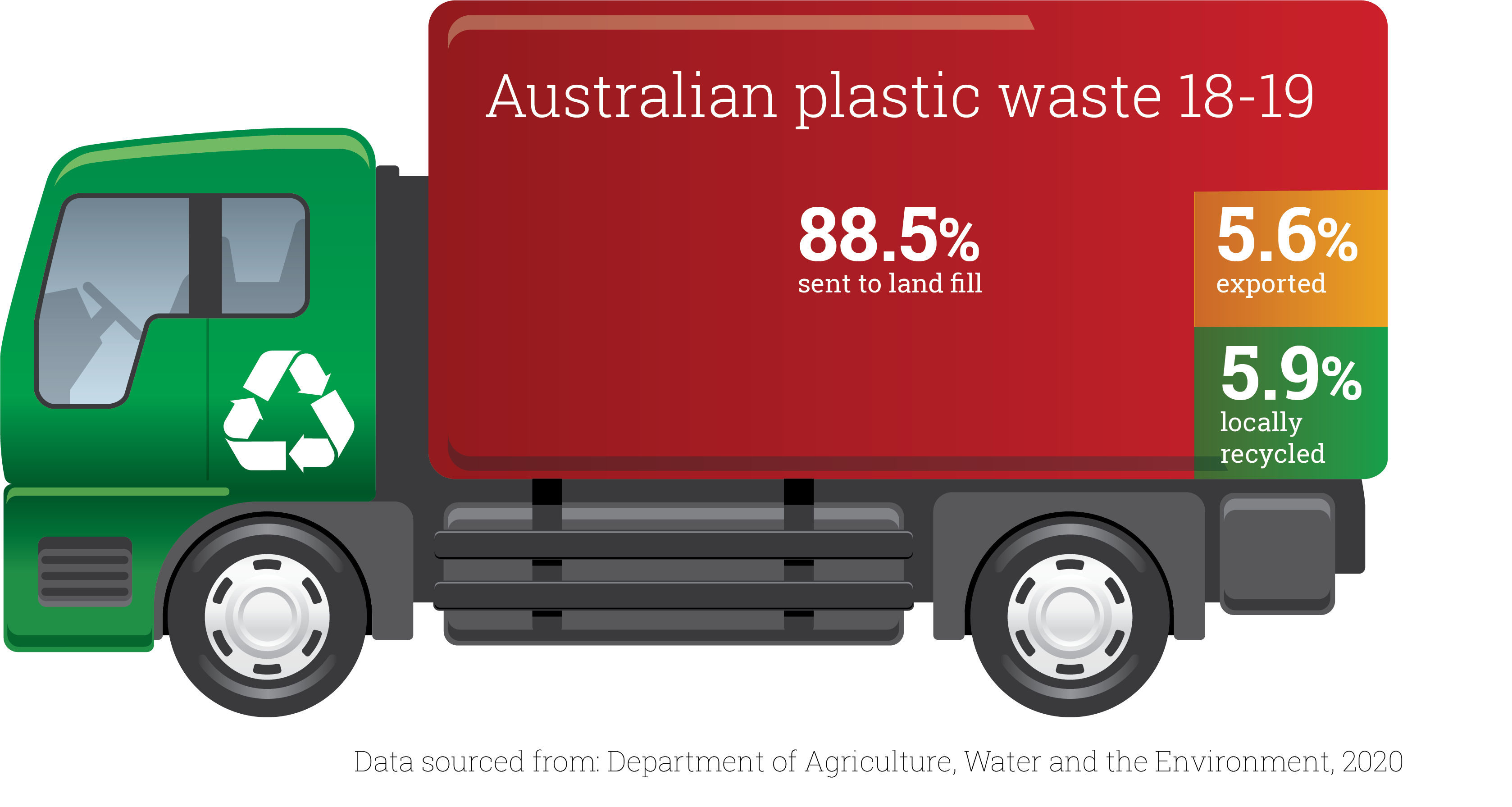
“Incorporating recycled plastics into asphalt pavement could help find an alternative method to recycling plastic while improving the quality of Australian roads.”
This national project, funded by the Commonwealth/Transport Infrastructure Council through Austroads, aims to identify technological solutions to use recycled plastics in asphalt roads. By working with plastic recyclers and associations, the asphalt industry and State Road authorities across Australia and New Zealand, the project will evaluate several sources of recycled plastic and their suitability to be incorporated into asphalt pavements.
Knowledge sharing
The project will produce three detailed reports.
Overview of the recycled plastic industry and recycled plastic types
The first report outlines the type, volume and price of recycled plastics and their possible use as ‘road-grade’ plastics in Australia and New Zealand.
Date of publication: April 2021
Towards the selection of road-grade plastics and preliminary testing outcomes
This report will outline the initial performance and environmental assessment of bitumen and asphalt modified with recycled plastics. It will elaborate on the methodology adopted for the bitumen and asphalt tests and the testing frameworks developed for the analysis of emissions and microplastics. Preliminary results associated with the use of recycled plastics incorporated into asphalt mixes via various methods will be discussed from a performance and environmental point of view.
Date of publication: November 2021
Road-grade plastics for sustainable asphalt: final performance and environmental assessment
The final performance and environmental assessment will show all experimental results obtained in APT6305 and outline the possibilities and limitations associated with the use of recycled plastics incorporated into bitumen and asphalt mixes via various methods. Environmental issues and potential health impacts associated with the use of recycled plastics in asphalt roads applications will be comprehensively addressed in this report.
Use of Road-grade Recycled Plastics for Sustainable Asphalt Pavements: Final Performance and Environmental Assessment Part A
Date of publication: May 2022
Use of Road-grade Recycled Plastics for Sustainable Asphalt Pavements: Final Performance and Environmental Assessment Part B
Date of publication: October 2022
Areas of testing and investigation
Wet methodThe wet method incorporates recycled plastics in the form of flakes, pellets, or powder into bitumen as a polymer to produce polymer-modified bitumen. With asphalt mixing temperatures commonly around 165-175°C, the recycled plastics required for this method need to have a lower melting temperature than the mixing temperature of the asphalt. The main objective of the wet method is to obtain a homogenous mix during the blending process when incorporating recycled plastics into bitumen. Due to the recycled plastics melting into bitumen through this method, any shape/form can be incorporated subject to prior compatibility and suitability clearance. Dry methodThe dry method incorporates plastics into the asphalt mix as a replacement of quarry aggregates, commonly as sand replacement or coarse aggregates. Compared to the wet method, the recycled plastics act simply as a replacement of a non-renewable source (i.e., the aggregate) without being expected to provide any direct benefits in terms of performance. The incorporated recycled plastics should preferably be in pellet or powder form, as elongated particles (i.e., flakes) can generate problems of workability and inadequate resistance to applied loads. Compared to the wet method, contractors do not need to be equipped with a polymer-modified bitumen plant and can simply use an external feeder to their existing asphalt plant. Mixed methodThe mixed method incorporates recycled plastics in any shape or form into the mixer together with the hot aggregate prior to the addition of standard neat bitumen. This method lies in between the wet and dry methodologies and is expected to provide some sort of polymer-modified to the bitumen during the short mixing time with the aggregates at high temperatures. Recycled plastic suitable for this method is low melting point plastics, similar to the wet process. Work, health and safety guidelinesLaboratory generated fumes will be analysed to evaluate differences and analogies between standard, plastic modified samples, and polymer-modified bitumen. The aim is to capture increased levels of exposure (if any) to gaseous emissions from plastic-modified asphalt and bitumen. Fumes and emissionsVarious methods and testing standards for assessing emissions possibly produced during the wet and dry methods will be scrutinised to obtain an in-depth understanding of the use of recycled plastics in asphalt road applications. Microplastic particlesMicroplastic tests involving the simulation of road traffic with specific machinery will be used to develop new testing frameworks that evaluate and quantify microplastic particles generated by plastic modified bitumen and asphalt. |
|
Updated: November 2022

